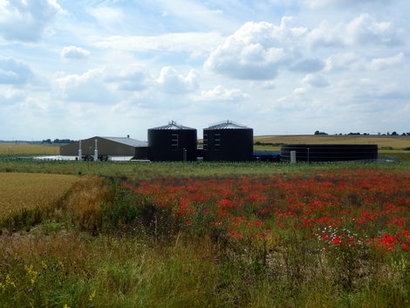
The UK Anaerobic Digestion and Bioresources Association (ADBA) said it is encouraged by measures set in the strategy but adds that the industry can contribute more.
By capturing harmful gases from organic wastes and transforming those into valuable bioproducts, anaerobic digestion (AD) technology currently reduces the UK's GHG emissions by 1 percent annually. With the industry fully deployed, this could rise to 6 percent of the UK’s total GHG emissions by 2030
With over 680 plants currently in operation, AD is a proven technology that can immediately help reduce the carbon footprint of the UK's hardest-to-decarbonise sectors: heat, transport, agriculture and waste management .
ADBA said it welcomes the Net Zero Strategy: Build Back Greener published last week by the UK Government, in which it acknowledges the role that AD, biogas and biomethane can play in achieving the country's targets.
However, the trade body also thinks that the strategy significantly underestimates the contribution that biogas and biomethane can make in decarbonising key sectors of the UK economy, notably transport, heat, agriculture, and waste management. While government policy aims to triple biomethane in the gas grid by 2030, ADBA's modelling suggests that the industry could deliver far more, increasing its biomethane production ten-fold – enough to heat over 4.5 million homes each year.
“We were encouraged to see the recognition given to anaerobic digestion (AD), biogas and biomethane in contributing towards meeting the UK's Net Zero target” said Charlotte Morton, ADBA Chief Executive. “It shows that our work in highlighting the sector's potential to decarbonise the UK's most carbon-intensive sectors of heat, transport, agriculture, and waste management is bearing fruit. However, the strategy falls far short of the ambition needed for realising that potential. Our research demonstrates that our industry can deliver significantly more, and - crucially – far more quickly, than is predicted in the plan. The UK is among the first signatories of the EU-US-led Global Methane Pledge, which aims to cut methane emissions by at least 30 percent against 2020 levels by 2030. The Global Methane Assessment published by the Climate and Clean Air Coalition (CCAC) earlier this year indicates that tackling methane emissions caused by human activity is the most ‘immediate and cost-effective’ way to keep global warming below 2°C. Unsurprisingly, the CCAC’s report recognised AD as one of the readily available technologies that can deliver methane emissions’ reduction at low cost. As we have said multiple times, there's no Net Zero without biogas.”
For additional information:

